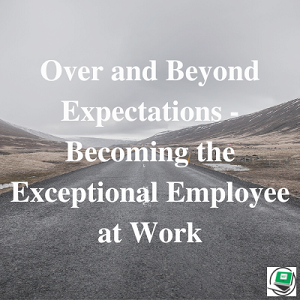 |
What Got You Here, Won’t Get You There |
The importance of developing aspiring leaders - One of the most significant challenges faced by organisations is how to support and enable a smooth and seamless transition to team leadership roles.
The technical skills and abilities that were critical to individuals in the past, contribute only 15% on their ability to make an impact today. So what about the balance of 85%? Just what are those skills, knowledge and behaviours critical to successful first time / line leadership? And how can organisations support and enable leaders on their leadership “journey”.
Producing a list of critical behaviour, skills and knowledge consistent with effective first time/line leadership is easy. However, the reality of acquiring, developing and applying them as and when situations arise is another story. So just what can organisations and existing leaders do to ensure first time / line leaders are provided with the best possible chances of success?
Organisations surely need a representative, meaningful and user-friendly definition of what effective first time / line leadership looks and feels like. If we embark upon the leadership journey with no destination, we will for sure arrive there.
This framework should consist of no more than six categories that accurately describe what outstanding leadership consists of. These leadership competencies then need to be used for key HR practices – recruitment, selection and development of leaders in the organisation.
Having identified the key leadership competencies we then need to ensure the most cost effective ways of measuring and developing aspiring new leaders. However just how many organisations actually have an aspiring leader development programme? The dangers of not having programmes to prepare and develop leaders are numerous and have significant implications.
Organisations must take full advantage of existing skills and knowledge which are evident in their leadership team. Training leaders as coaches and mentors and supporting them through coaching supervision is critical to developing “home grown” talent.
It is also important for aspiring leaders to appreciate the importance of committing to self-development: Taking personal responsibility for continuing professional development rather than constantly looking upwards for things to be “done to and for them”.
There are numerous examples of organisations that wish to short circuit the process and adopt an Elastoplast quick fix solution – to development. Bringing about sustainable change requires a longer term and more focused approach. Personal development is a journey not an event.
If we are serious about enabling individuals successfully navigate their way on the leadership career we must surely prepare them for the journey. Having an aspiring leader’s development programme which incorporates a variety of learning processes is just sound economic business sense. Engagement and sustainable commitment of all interested parties to the development of new leaders is of upmost importance.
You can only really influence an outcome – make a difference - by being on the “field of play”.
Enable people to move from spectatorship to positive ownership.
GTC has significant experience in the design, implementation, and evaluation of leadership development programmes. We would be delighted to speak to any organisations that have an interest in developing this most valuable and precious resource.
Enjoy this article? Feel free to share your comment, idea or opinion in the comment section
Related Articles

|
The Power of Positive Words, Actions and ReinforcementThe general definition of the term WORD is to say something, name, express, command, order or instruct. ACTIONS simply put is how we act, react, operate or the effort we put in to do something. REINFORCEMENT could be summarised as what helps to build up or increase anything.
How d [Read more]
|
Posted: 13 years ago |

|
Nigeria Can Strengthen Economy via Wheat Trade LiberalizationReport Highlights: Nigeria remains a huge export market for wheat with export value of U.S. wheat averaging $1 billion, about 85 percent share of the wheat market. The high demand is mostly pressured by increasing consumption of wheat flour - based products and insufficient domesti [Read more]
|
Posted: 13 years ago |

|
Over and Beyond Expectations - Becoming the Exceptional Employee at WorkIf you have read a lot of books, listened to podcasts, or even watched many videos about financial or wealth education, then it is very likely that you would have come across the following statement a couple of times. "You really cannot become rich by being an employee or by doing a 9 to 5 work [Read more]
|
Posted: 4 years ago |


